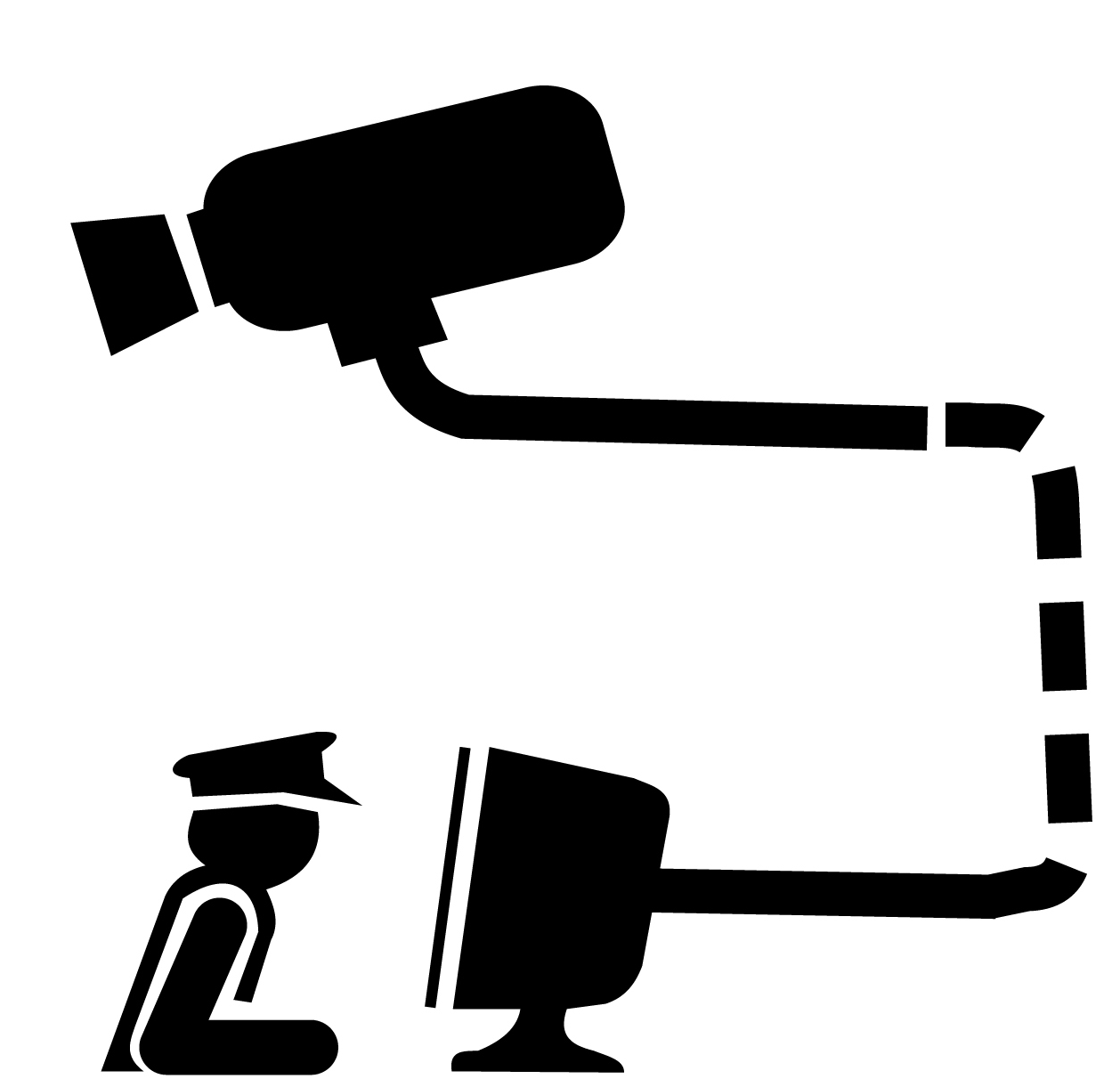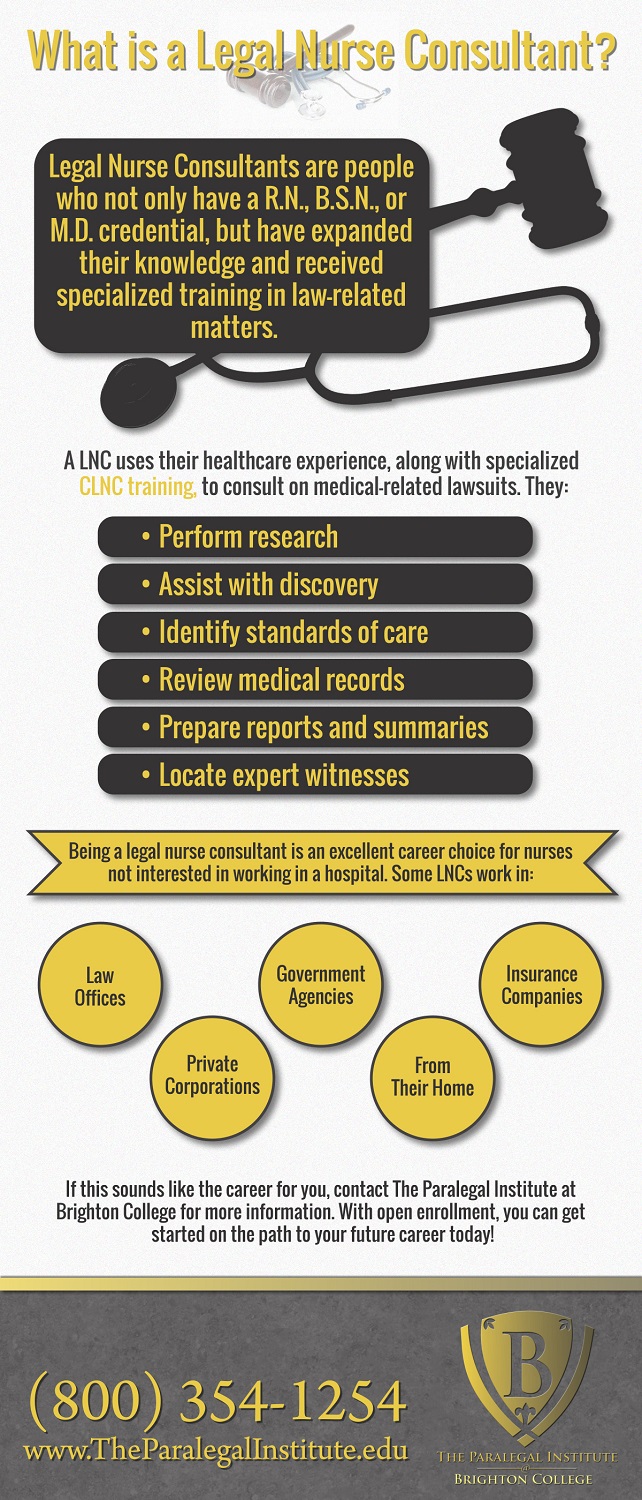

News
How to Become a Private Investigator

Do you have an inquisitive mind? An interest in law and order? An affinity for justice and a proactive approach to problem solving? If you answered yes to those questions, then you are someone who should consider a career in private investigation. Private investigation is not what you might think; it doesn’t all involve surveillance of cheating spouses or recovering stolen artifacts of great value. It’s a booming professional field which goes far beyond simple domestic investigations and offers jobs across a wide range of businesses and law enforcement agencies. It’s a career that can take you from anti-terrorism to computer crimes to human trafficking to working as corrections officer or an insurance investigator.In other words, a career in private investigation offers many different options and directions for you to choose from and that makes it a flexible, multifaceted and rewarding career choice. Even though you may not wind up slinking down dark rain-slicked alleyways in a slouch hat and a trench coat, you will be asked to call on your skills and training to solve sometimes intricate puzzles that no one else has solved.If this is the kind of challenge that grabs your attention then here’s some information that will help you get on the road to becoming a private investigator.
Before doing anything else, evaluate objectively what kind of temperament you have. A good p.i. has to be a good communicator and an even better listener. You are observant and analytical, and have a knack for reading subtext in conversations, understanding body language and assessing degrees of truthfulness. You’ve got a strong personal moral compass and can work independently. You are able to remain objective and you produce results that are fact-based.
If this sound like a good fit for you, your first official step will be to acquire the knowledge and training you’ll need, since becoming a private investigator is not quite as simple as hanging out a shingle and waiting for clients to walk in.
A Criminal Justice diploma from the Paralegal Institute at Brighton College requires eight core classes (30 units). The program provides the student with an comprehensive overview of the field and with specific classes geared towards gaining an understanding of the different areas of the criminal justice system. Introduction to Criminal Justice provides the overview and the other seven classes concentrate on specifics in Constitutional Law, Criminal Law, Criminal Procedures, Criminal Investigations, Ethics, Corrections and Juvenile Delinquency.
After you have successfully completed the courses, there’s a good chance you will also need a state license to practice. Over 40 states now require them and the  states that don’t often allow individual counties and cities to have their own licensing requirements.
states that don’t often allow individual counties and cities to have their own licensing requirements.
These licensing requirements can differ from state to state, so check with your state to see what they require. There are some general requirements that most of them have in common. Most want proof of a high school diploma or equivalent GED and for the applicant to meet an age minimum which can vary from state to state; to have a record that is free of felony convictions; to have had either industry experience or education; and to have proof of legal citizenship or residency.
After you’ve gotten your diploma and met your state’s licensing requirements, you are ready to get into the field. You will be qualified to accept entry level positions with a great many law enforcement agencies and private corporations. And in your work you will notice that there are many law enforcement officers and lawyers who possess the same degree you have, because it’s a useful and applicable tool for anyone who is involved in the field of investigation.
If you join a law enforcement agency or a very large corporation – like a national insurance agency or a bank that has its own fraud investigation unit – you will probably have access to any equipment you might need in your investigations. If you decide to join a small agency or to work for yourself, you will want to invest in some basic surveillance equipment like video and digital cameras, recording devices, gps trackers, a charger or backup battery and binoculars. There is a vast array of tools that can be used during investigations, but at first it’s better to just stick to the basics and avoid extra expenses on equipment that you may or may not ever use.
Private investigators can work in a varying capacities including personal protection, employee screening, computer forensics, insurance fraud, industrial espionage, retail loss, corrections, background checks, anti-terrorism and many more.
One growth area with an ongoing need for investigators is cyber-crime, which continues to expand and spawn endless varieties of global scams like identity theft, extortion, sports betting and child pornography. Given the limitless reach of the internet, there will undoubtedly continue to be a growing need for individuals with good investigative skills who can take on these difficult “invisible” crimes.
So whether you want to be a part of the global battles on trafficking or terrorism, you are fascinated by sophisticated fraud schemes or you really do want to be the next Sam Spade, there’s an investigation niche for you.
If you decide you want to advance once you are in the field or if you want to start out your investigative career with even more education under your belt, you can continue your online studies at Brighton College to earn a Criminal Justice Associates degree.
How to Create Opportunities
How to Create Career Opportunities
Great career opportunities don’t usually just fall into your lap. Success is not a gift. Here are some tips on how you can create career opportunities and build success for yourself.
- Be Prepared
An opportunity is no good if you aren’t prepared for it. Seek out the education you need and practice your professional skills constantly.
- Network
Connect with people in your industry to increase the likelihood that they will pass opportunities to your way.
- Seek Out Opportunities
Set up alerts and search through industry and career sites to find opportunities that will be a good fit for you.
- Drop What Doesn’t Serve You
Don’t stay in jobs with no opportunity for advancement or in a situation that actively keeps you from opportunity.
- Don’t Ignore Small Opportunities
Never pass by an opportunity for growth, even if it seems too small. Your success may open doors in the future.
- Know What You Want
Don’t aimlessly try to create opportunities for random things. Have a clear idea of what it is that you want and work towards that goal.
Star building career opportunities in areas such as paralegal, criminal justice, allied health, legal nurse consulting and more with the online career training programs available at The Paralegal Institute. Contact us today to learn more!
How to Succeed with Online Career Training

People come to online learning and career training for different reasons, but the common thread is that in the 21st century, our lives are increasingly busy with jobs, families and work. In order to change careers or advance in the field you’re already working in, you may be thinking about online learning as your way forward.
Learning online can be a tremendously rewarding experience if you use some basic principles. Some may seem obvious, but remember, you will be sitting alone in a virtual classroom for the first time, and establishing good habits in that singular venue at the beginning will help propel you through the process successfully. Making these habits second nature makes it easier to focus on learning and avoid wasting time.
Before you start any classes, make sure your technical skills are up to date. You should be comfortable with at least a word processing system, navigating around the internet and creating documents. If you are not quite at that point, there are community colleges, adult education at high schools and online courses that all offer basic computer classes. And don’t forget that taking notes requires typing, so if you type slowly, try using a typing software program to help you speed up.
Time management is crucial. A class worth three credits is estimated to require nine hours a week of studying, depending on the level and difficulty of the class. Try to schedule 1 1/2 hours at the same time each day to work on class assignments. Stick to the blocks of time you have set out for studying and don’t juggle learning with trips to the store or picking the kids up from soccer practice. Don’t allow anything other than an emergency to interrupt you. Make a daily to-do list and use a calendar to keep track of project due dates and when you start and complete assignments.
Limit Distractions. Turn off your cell phone and disable the notification beep that sounds when new email comes in. If you have a room with a door, by all means use it! If not, public libraries and local college libraries are quiet and usually have access to wi-fi. Resist the temptation to do your work at the local coffee house which is full of distractions. And if you’re a gamer, consider deleting all games from the computer you are using for school.

Don’t take on too much. If you’ve never taken an online class, start with one or two classes instead of a full course load. Too many courses can be overwhelming, and when you feel overwhelmed you are much more likely to give up. By starting at a slower pace, you will get used to the demands and the time requirements as you learn the subject matter. By the second time you register for classes, you will have a much clearer idea of how much you can realistically handle without burning out or dropping out.
Communicate. Your professors do want to hear from you and usually provide email and text information to their students. Don’t hesitate to contact them with questions or comments – this adds a little personal interaction to an otherwise anonymous situation. Arrange a weekly online meeting with fellow students to discuss the class subject so you have access to different ideas and opinions. Interaction is different online, but in terms of learning, it can be just as effective as in-person communication after you get used to it.
Keep it clean. Seriously. Unclutter your workspace so you know exactly where to look when you need the notes you took, your calendar or the original syllabus for the class. Once you have organized your space to your satisfaction, make a point of keeping it that way. The more organized your surrounding are the more focused you can remain. Remember the four C’s: Clutter, Causes, Chaos, and Confusion.
Online learning can be the start of a whole new life for the student who adapts well to it. With the tips given here, you should have enough understanding of the process to be confident that you can get the most from online learning and use the skills you acquire to become a success in your chosen field. Ready to get started? Contact us today!
Non-Government Criminal Justice Careers
When people think of jobs in the field of criminal justice, positions like police officer, corrections professionals or even fish and game warden. However, there are a variety of positions outside of those affiliated with the government you could pursue with this degree. Let’s take a look at just some of the non-government criminal justice careers that are available.
Bounty Hunter
These workers are typically independent contractors, rather than working for any particular agency or organization. They don’t always require a degree, but an education in criminal justice could help to get you hired. Bounty hunters search for wanted criminals or individuals with an arrest warrant. They are paid a percentage of the bail for the wanted individual.

Crime Prevention Specialist
These specialists assist companies and organizations in various ways. They may provide security consultation, install security equipment, monitor security systems or teach crime prevention workshops. Crime prevention specialists may also analyze crime patterns and statistics in order to create strategies for minimizing crime.
Insurance Investigator
These investigators research and investigate claims for insurance companies. They utilize skills learned through their customer service training in order to determine whether false claims have been reported. This kind of false activity is considered fraud and comes with criminal penalties.
Loss Prevention Officer

The position of loss prevention officer is one that comes with a great deal of job security, as these duties require a trained individual to perform them and cannot be automated through the use of electronic surveillance equipment.Those pursuing a career as a loss prevention officer will usually be employed by a retail store, though they also work for private companies. Their primary role is to prevention the theft of merchandise or company property by customers or employees. Loss prevention officers can work directly for the store or company. They may also be hired by a third-party employer specializing in placing such professionals.
Private Investigator
Those wishing to have a great deal of personal freedom and to help people obtain information on missing relatives, determine the activity of a loved one such as a spouse suspected of infedility or prove the fraudulent activity of an individual may wish to look into becoming a private investigator. These jobs are not usually as rigid or as subject to bureaucracy as typical law enforcement positions. A PI works for an independent agency to provide information to clients through surveillance or other investigative methods.
Security Guard
These criminal justice professionals work for private organizations or properties to guard against burglary, petty theft or other crimes. They monitor and inspect buildings and property in order to deter trespassers from engaging in criminal activity. They may patrol on foot or provide electronic surveillance. Security guards are needed in nearly any business, residential complex or retail establishment. Thus, there are often jobs available.
If you think you would like to pursue a degree in criminal justice, contact a representative at The Paralegal Institute today for more information on our criminal justice Associate’s degree or our criminal justice diploma.
How to Use LinkedIn to Network in the Criminal Justice Industry

Finally graduating and earning your criminal justice degree is such a triumphant feeling. You absolutely should be proud of yourself for all the hard work you’ve done. You earned the prize, but it’s not time to relax just yet. The next step is to leverage the good grades, topic knowledge and experience you’ve gained to impress potential employers and get your dream job. The job search can be a bit intimidating and overwhelming. However, in this day of technology, you’re fortunate to have a number of efficient and effective ways to learn about open positions for which you qualify and to connect with key hiring personnel for those positions. Online networking can provide you with benefits like learning experiences, a relationship with a mentor or opportunities to significantly contribute to the profession. You can use social media, specifically LinkedIn, to network in the criminal justice industry and make connections that could lead to a great job.
First, Create Your Account
Ideally, your online networking strategy should begin prior to graduation. By your final year or last semester, depending on the length of your criminal justice program, you should set up a LinkedIn account. This is your professional online networking platform. Thus, you will need to be sure your profile looks professional, almost like a resume. Add quantifiable achievements to your description so that potential employers can see specifics about the kinds of accomplishments you bring to the table.
Use key words you might see in job descriptions for which you intend to apply. This will make you easier to find if head hunters or company representatives are seeking someone for a particular position. List significant skills that are easy to scan, and include only your most relevant work, volunteer or internship experience.
Make Connections
Begin to search for contacts within the criminal justice field. You can add your instructors and classmates first. That makes sense, as they’re the people closest to you right now. Experts have different opinions on whether you should connect with many people or whether it makes more sense to stay within your industry and people you would ordinarily network with in real life. Use your judgement. Taking a risk may be smart. For example, if you see that one of your personal contacts knows someone at a firm where you would like to work, it makes sense to ask for an introduction. One rule that always applies is to make each connection personal. Take time to write a personalized message of introduction when connecting and always try to offer something useful to your connections, rather than always asking for help or a favor.
Follow Relevant Accounts
Be sure to follow a wide variety of companies, agencies or organizations that hire for the type of criminal justice position you hope to attain. On that note, you should have an idea by the time of the kind of work you want to do. Add your specialization area to your profile so it is clear. Following key players will allow you to see when job postings are available.
LinkedIn can be a valuable networking tool in the criminal justice industry. Reach out to The Paralegal Institute if you have specific questions about networking within the field.
What’s the Difference Between a Probation Officer and a Parole Officer?

Many people get parole officers and probation officers mixed up. It’s an understandable mistake, given that both work with someone who has been convicted of a crime. The real difference between a probation officer and a parole officer has to do with the sentencing of those they work with.
Probation officers typically supervise people who have not been ordered–or remanded–to state prison, while parole officers usually work with those who have served part of their sentence in state prison and who have been provisionally released–or paroled–back into the community.
In most places, persons convicted of misdemeanors such as driving under the influence or domestic violence, receive “court” or “informal” probation for a fixed period of time. As long as they are not cited for committing a new offense or for violating the terms of their release (perhaps by failing to complete any court-ordered counseling sessions), they remain free and do not report to anyone, as the judge hearing their case serves as their “informal” probation officer.
In contrast, those who are convicted of a felony usually face the potential of being incarcerated for a year or more, either in state prison or in a local jail. Because felonies are more serious crimes, before a judge will sentence a defendant in a felony case they will usually request a report from the County probation office asking for their input on what the defendant’s sentence should be. Probation officers must interview the defendant, examine the defendant’s past criminal history, review the facts of the case and provide an estimate to the Court on how likely the defendant is to successfully complete a probationary term and how difficult they are expected to be to supervise.
If the court grants the defendant probation, their probation officer is in charge of making sure they are living a lawful life that contributes to the community. This means that they are in charge of drug testing, searches, and making sure that the limitations created by the probation have not been broken. If the defendant is found in violation of his or her probation, it’s up to their probation officer to tell the court.
In contrast, a parole officer usually works with defendants who have been sentenced to state prison. Instead of trying to determine how likely it is that the defendant can be successfully supervised, a parole officer’s goal is to prepare a reentry plan so that the defendant can rejoin society after serving what may have been a lengthy prison stay. This might include trying to determine where the best place is for a prisoner to live after release and what other steps they need to take to maximize the chances they will be able to be honorably discharged from their parole. In the case of registered sex offenders, a parole officer must usually plan for the defendant to be supervised for the rest of their lives to some degree, if only by being required to register their address each year.
Both parole and probation officers are an important part of the criminal justice system. If you are interested in becoming a parole or probation officer, taking our Criminal Justice Program online is a good place to start.
Criminal Justice Government Jobs

Popular Government Jobs in Criminal Justice
Federal, state, and local governments offer a wide variety of fast-paced jobs for applicants with an associate’s degree or diploma in criminal justice. Although the mention of a career in criminal justice might bring to mind being a police officer, the truth is that many government job openings exist in the criminal justice system to take you into any career path you could possibly imagine with your associate’s degree or diploma.
Whether your interests are in forensics, law enforcement, corrections, the courts, or other segments of the criminal justice system, there is probably a government job that will appeal to you. What follows are just a few of the many government jobs available to you with an associate’s degree or diploma in criminal justice.
Law Enforcement
Uniformed law enforcement personnel usually carry firearms and enforce the laws of the state in which they are employed. They have the power to make arrests, conduct searches, and issue tickets or citations. Typical law enforcement jobs at the state and local levels include:
- Police officer and deputy sheriff

- Fish and wildlife police and game wardens
- Investigators working for state and local agencies to enforce agency regulations and policies, such as alcohol and beverage control, child and adult protective services, and public health agencies
On the federal level, government jobs in criminal justice include police officers, investigators, and special agents for agencies such as:
- Bureau of Alcohol, Tobacco, Firearms and Explosives
- Federal Bureau of Investigation
- Drug Enforcement Administration
- S. Marshals Service
- S. Fish & Wildlife Service
Other federal agencies, such as the Department of Homeland Security and the U.S. military, have law enforcement jobs available as well.
Correctional Officers
Corrections is the segment of the criminal justice system that takes control of someone arrested and awaiting trial, or convicted and sentenced to incarceration. Correctional officers usually work in jails and prisons overseeing inmates.
Officers work in close contact with the inmates while maintaining order throughout the facility. On the federal level, jobs can be available in any of the many prisons operated by the U.S. Bureau of Prisons or by the Department of the Interior.
Courtroom Deputies
The efficient functioning of the federal court system depends, to a large extent, on the courtroom deputies. Deputies help judges by performing a number of duties, including:
- Managing what goes on in the courtroom
- Managing the court’s calendar, keeping track of case deadlines, and filing documents
- Keeping judges informed about the status of cases
- Safeguarding and managing evidence and exhibits during trials
- Coordinating with other clerks to schedule jurors and courtroom personnel
Criminal Justice Careers Starting with a Government Job
Many of the government jobs in criminal justice can transition into careers in the private sector once a person retires or elects to leave government service. For example, a career as a police officer may eventually lead someone into the private security field as an investigator for various businesses, including insurance companies.
The Power of Your Criminal Justice Education
A great criminal justice education will give you a competitive edge by introducing you to the institutions and principles that you will encounter in the government job you want. Contact us today to learn more about how the associate’s degree or diploma you can earn at The Paralegal Institute at Brighton College can be your first step toward preparing you for an exciting career in criminal justice.
Paralegals: What Do They Do
Many people don’t really understand what it is that paralegals do, which can be a bummer since paralegals are so indispensable. Being a paralegal is a great way to work in the legal field without having to commit yourself to law school or pass the bar exam. It may not surprise you to find out that The Paralegal Institute at Brighton College offers online paralegal training. This way, you can study for your new career at a pace that works for you. We have two different options for online paralegal training- a diploma program and associates degree. If you are interested in pursuing a career as a paralegal, request some more information from us today!
What Is A Legal Nurse Consultant?
Legal Nurse Consultants are people who not only have a R.N., B.S.N., or M.D. credential, but have expanded their knowledge and received specialized training in law-related matters.
A LNC uses their healthcare experience, along with specialized CLNC training, to consult on medical-related lawsuits. They:
- Perform research
- Assist with discovery
- Identify standards of care
- Review medical records
- Prepare reports and summaries
- Locate expert witnesses
Being a legal nurse consultant is an excellent career choice for nurses not interested in working in a hospital. Some LNCs work in:
- Law offices
- Government agencies
- Insurance companies
- Private corporations
- From their home
If this sounds like the career for you, contact The Paralegal Institute at Brighton College for more information. With open enrollment, you can get started on the path to your future career today!
Embed This Image On Your Site (copy code below):
Criminal Justice Government Jobs
Popular Government Jobs in Criminal Justice
Federal, state, and local governments offer a wide variety of fast-paced jobs for applicants with an associate’s degree or diploma in criminal justice. Although the mention of a career in criminal justice might bring to mind being a police officer, the truth is that many government job openings exist in the criminal justice system to take you into any career path you could possibly imagine with your associate’s degree or diploma.
Whether your interests are in forensics, law enforcement, corrections, the courts, or other segments of the criminal justice system, there is probably a government job that will appeal to you. What follows are just a few of the many government jobs available to you with an associate’s degree or diploma in criminal justice.
Law Enforcement
Uniformed law enforcement personnel usually carry firearms and enforce the laws of the state in which they are employed. They have the power to make arrests, conduct searches, and issue tickets or citations. Typical law enforcement jobs at the state and local levels include:
- Police officer and deputy sheriff
- Fish and wildlife police and game wardens
- Investigators working for state and local agencies to enforce agency regulations and policies, such as alcohol and beverage control, child and adult protective services, and public health agencies
On the federal level, government jobs in criminal justice include police officers, investigators, and special agents for agencies such as:
- Bureau of Alcohol, Tobacco, Firearms and Explosives
- Federal Bureau of Investigation
- Drug Enforcement Administration
- U.S. Marshals Service
- U.S. Fish & Wildlife Service
Other federal agencies, such as the Department of Homeland Security and the U.S. military, have law enforcement jobs available as well.
Correctional Officers
Corrections is the segment of the criminal justice system that takes control of someone arrested and awaiting trial, or convicted and sentenced to incarceration. Correctional officers usually work in jails and prisons overseeing inmates.
Officers work in close contact with the inmates while maintaining order throughout the facility. On the federal level, jobs can be available in any of the many prisons operated by the U.S. Bureau of Prisons or by the Department of the Interior.
Courtroom Deputies
The efficient functioning of the federal court system depends, to a large extent, on the courtroom deputies. Deputies help judges by performing a number of duties, including:
- Managing what goes on in the courtroom
- Managing the court’s calendar, keeping track of case deadlines, and filing documents
- Keeping judges informed about the status of cases
- Safeguarding and managing evidence and exhibits during trials
- Coordinating with other clerks to schedule jurors and courtroom personnel
Criminal Justice Careers Starting with a Government Job
Many of the government jobs in criminal justice can transition into careers in the private sector once a person retires or elects to leave government service. For example, a career as a police officer may eventually lead someone into the private security field as an investigator for various businesses, including insurance companies.
The Power of Your Criminal Justice Education
A great criminal justice education will give you a competitive edge by introducing you to the institutions and principles that you will encounter in the government job you want. Contact us today to learn more about how the associate’s degree or diploma you can earn at The Paralegal Institute at Brighton College can be your first step toward preparing you for an exciting career in criminal justice.



